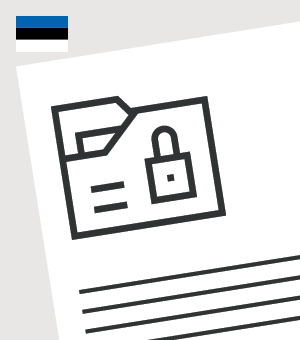A letter of guarantee is a unilateral, independent commitment by one company (the guarantor) to another company (the beneficiary), ensuring the fulfillment of a debtor's obligation to the beneficiary. For example, a parent company (the guarantor) may issue a letter of guarantee to a bank (the beneficiary) to secure the loan obligations of its subsidiary (the debtor).
Who can issue a guarantee?
A guarantee can be issued by any company. An individual (e.g., the company owner) cannot issue a guarantee but may secure the company’s obligations through a suretyship.
What does it mean that a guarantee is a unilateral obligation?
A letter of guarantee is issued solely by the guarantor, and the debtor’s approval or consent is not required for its issuance. In the provided example, the parent company issues the guarantee to the bank without needing the subsidiary’s consent. The guarantee becomes effective upon issuance and remains valid until the expiration date specified in the guarantee letter, the return of the guarantee letter to the guarantor, the beneficiary’s waiver of the guarantee, or the full payment of the guarantee amount by the guarantor.
What does it mean that the guarantee is independent of the secured claim?
Unlike a suretyship, the validity of a guarantee is not affected by the existence, validity, or performance of the secured claim. The beneficiary does not need to prove any breach of contract between the debtor and the beneficiary to make a claim under the guarantee. In the provided example, the bank can submit a claim to the parent company without having to prove whether the subsidiary has defaulted on its loan agreement. Additionally, only payments made under the guarantee reduce the guaranteed amount; payments made by the debtor directly to the beneficiary do not. For instance, if the bank submits a claim for a partial payout under the guarantee, the guaranteed amount decreases by the sum paid by the parent company. However, if the subsidiary reduces its loan balance with the bank, it does not affect the guaranteed amount—the bank may still claim the full amount specified in the guarantee letter from the parent company. Only a written demand from the beneficiary to the guarantor is required for the guarantor's payment obligation to arise under the letter of guarantee.
What to do if the beneficiary submits an unjustified claim?
If it turns out that the beneficiary's claim was unjustified after the payout of the guarantee amount (e.g., the subsidiary had fulfilled its obligations, but the bank still made a claim against the parent company), the guarantor should pursue legal action. If the court finds the beneficiary's claim to be unjustified, the guarantor is entitled to reclaim the guarantee amount, including any interest and damages.
What should be verified when the beneficiary submits a claim?
The guarantor is obliged to pay the claim only if it meets the conditions outlined in the guarantee letter. Therefore, it is necessary to verify the following:
- Correct Amount: The claim does not exceed the maximum amount stated in the guarantee letter.
- Timeliness: The claim was submitted within the validity period of the guarantee.
- Proper Authorization: The claim is signed by an authorized person, such as a board member or a duly authorized representative of the beneficiary.








